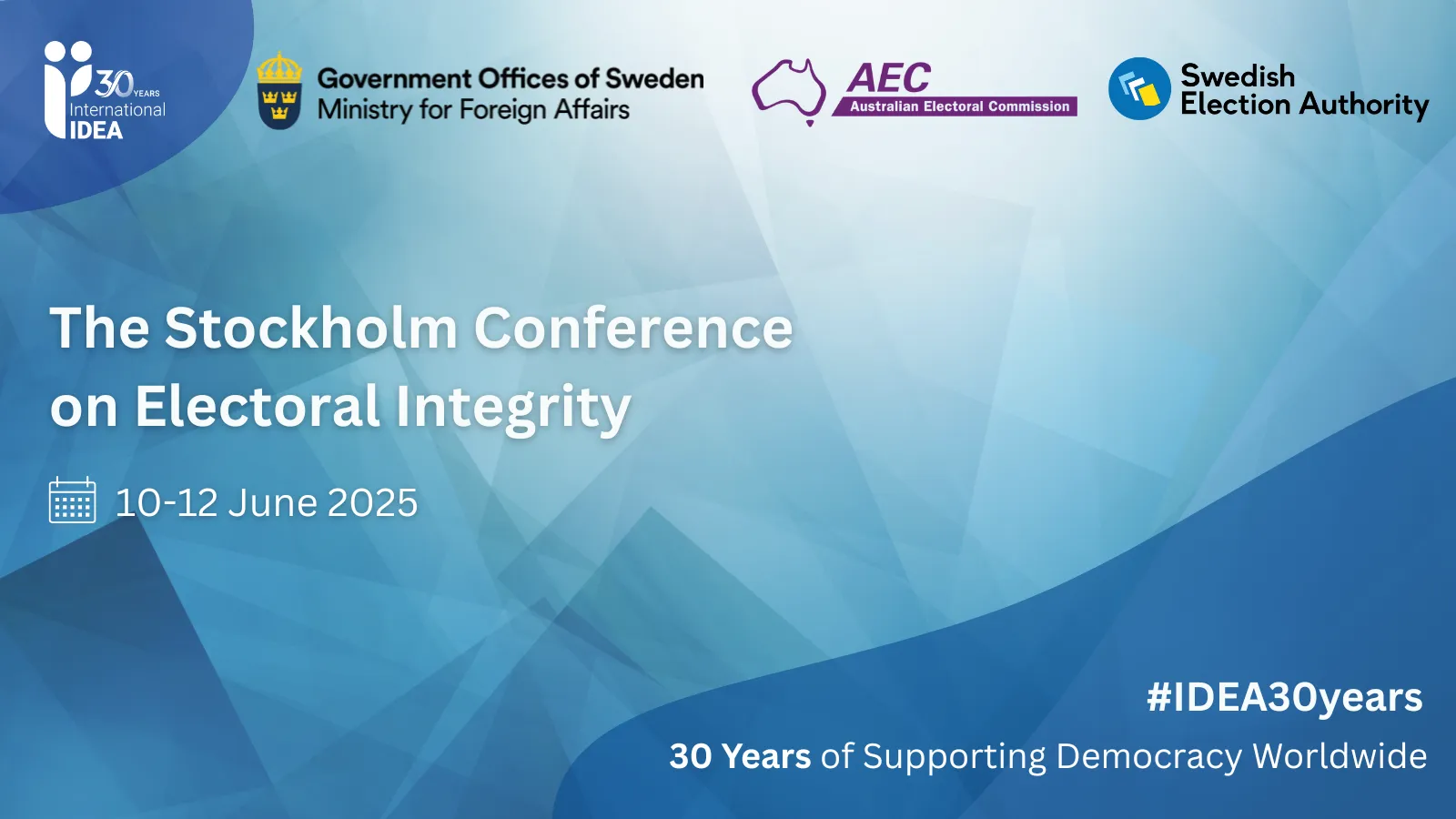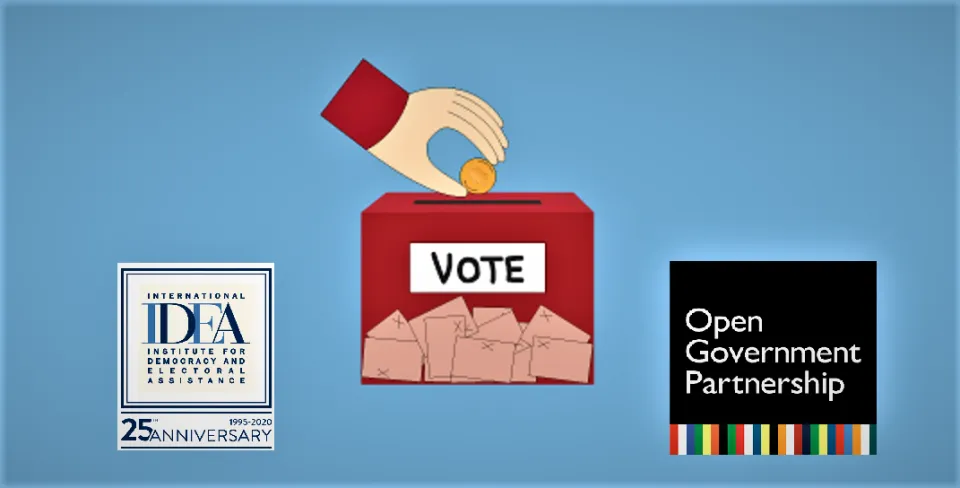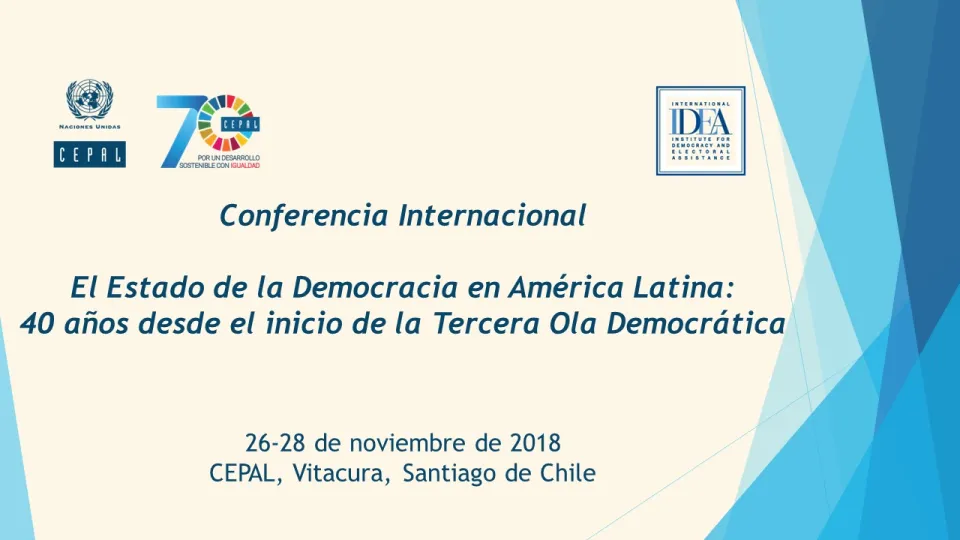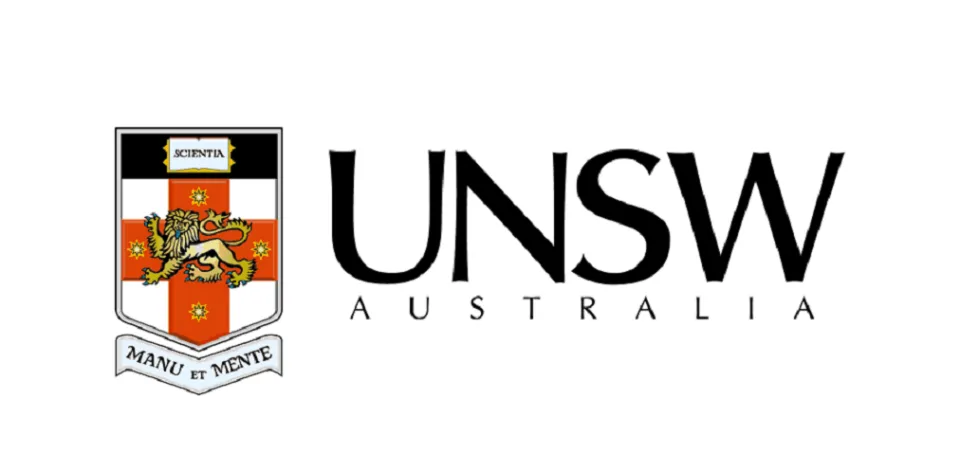The Stockholm Conference on Electoral Integrity

Electoral processes are conducted in increasingly challenging environments. The Stockholm Conference on Electoral Integrity will serve as an opportunity for policy dialogue between electoral management bodies (EMBs) and electoral stakeholders, emphasising EMB leadership and independence in complex regulatory questions.
Learn more about the conference and other June 2025 events.
Over two days, the conference will focus on global cooperation on electoral integrity, as well as EMB leadership under challenging conditions and in reform and regulation, and safeguards for EMB independence.
Session I: EMB Leadership under Challenging Conditions
The plenary session and discussions will explore the challenges of conducting trustworthy elections in a radically uncertain and rapidly changing world and the leadership role of electoral management bodies (EMBs) in meeting those challenges.
This first session will provide substantial examples of safeguards for institutional independence, mechanisms for interagency cooperation, and trust-building strategies.
Session II: Safeguards for EMB Independence
Electoral management in many countries is no longer viewed as a politically benign activity of public administration.
This session will explore the mechanisms – legal and behavioral – that underpin regulatory safeguards and operational approaches to protect EMB independence from anti-democratic assault, both political and public and will serve as an opportunity to discuss different aspects of the challenges faced by EMBs and solutions, while considering implications in different legal, policy, and governance frameworks.
Session III: EMB Leadership in Reform and Regulation
Regulatory design and enforcement in areas such as political finance and the information environment are among the more complex and technical aspects of electoral administration, particularly in politically divided contexts. Upholding the principles of a level playing field in the face of powerful domestic and geopolitical interests is daunting. Without safeguards, regulatory reforms can be used instrumentally to entrench power by incumbents, exclude opposition, or disenfranchise citizens.
The panelists will present recent or upcoming examples of regulatory reform and reflect on the challenges of upholding democratic and electoral principles in regulatory design, while mitigating the risks of unintended consequences, difficult security conditions, public distrust, or political pressure in elections and the rollout of reforms
Session IV: Global Cooperation on Electoral Integrity
The world has dramatically shifted over the past decade, and recently this shift has accelerated rapidly. Many of the issues facing EMBS go beyond national borders: from delivering out-of-country voting, adequate regulation of political campaigns and financing, and attempts to destabilize elections from foreign actors, both state and non-state.
Transnational cooperation and the revitalization of global norms are now high on the global electoral management agenda. Meanwhile, significant financial cuts in global development and the risk of electoral assistance legitimizing undemocratic processes are prompting a review of approaches to electoral assistance. The session will address what support EMBs need in a rapidly changing political environment.
Speakers




